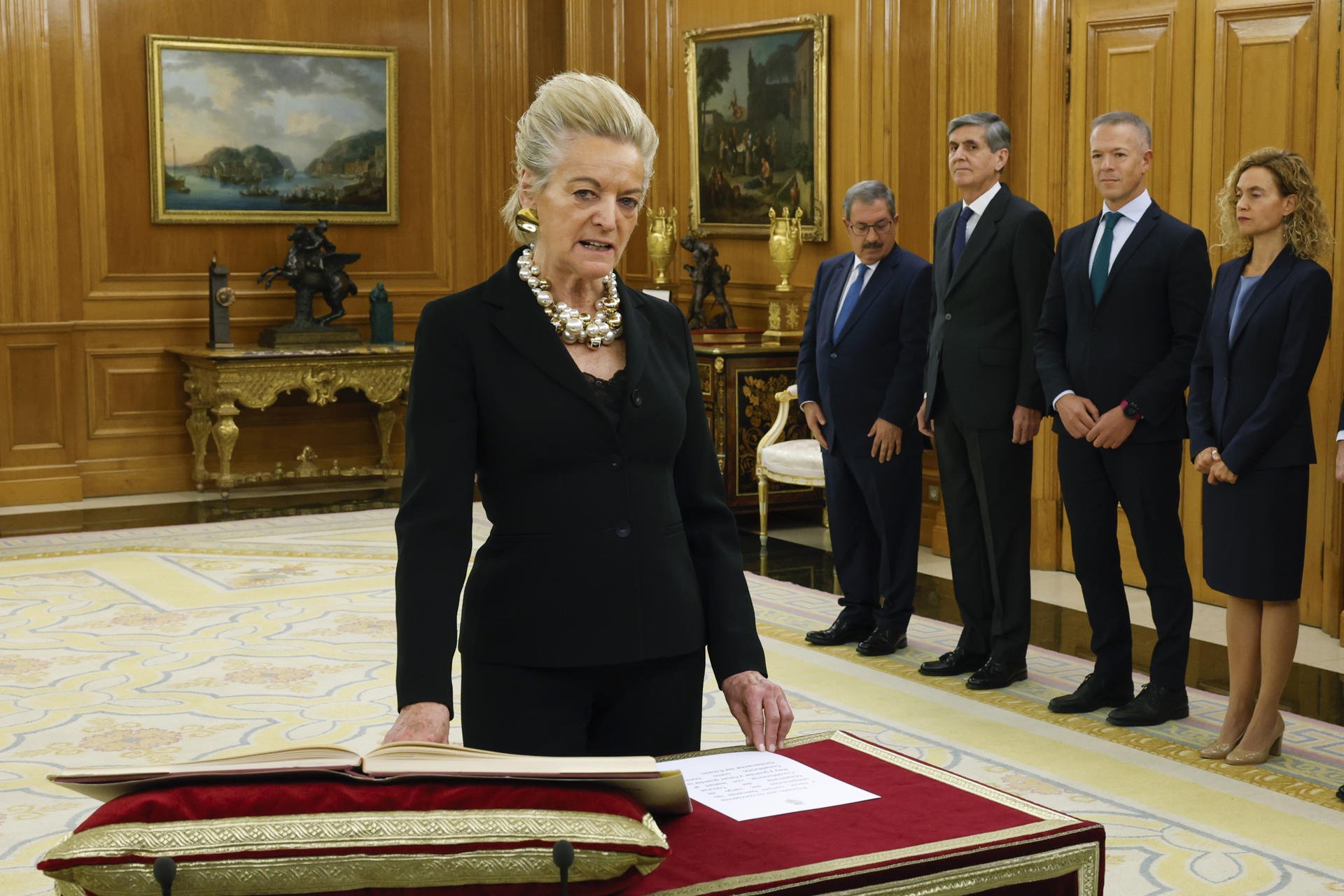María Luisa Segoviano, the Spanish Constitutional Court's new judge, assured this Monday that self-determination is "a complex issue" which "must be studied". "It is an issue that has many sides, which must be studied," she said in an interview to Onda Cero radio. The judge defended that "nothing should be rejected from the outset", although she pointed out that "that does not mean it is admitted". "That must be very clear," she added. Segoviano, a key figure in unravelling the renewal of Spain's Constitutional Court, has thus shown herself in favour of studying self-determination "little by little" because "one should not be afraid of any approach, of any position, nor of any suggestion" that may be put forward to the Constitutional Court. "We must look calmly at any approach and resolve it".
The new judge ruled out the possibility of the new TC dissociating itself from the doctrine set by the previous court on self-determination because "it is a precedent that can never be disregarded" and must be "respected". However, according to Segoviano, there are "similar issues" that may have "a certain differential element", which "may require a greater reasoning than what has been done previously". "It is a complex issue and one that must be examined very carefully," she said.
Spanish Constitutional Court's new judge defends the Constitution
Likewise, she made clear that "the Constitution is fantastically made" and that "it can still give a lot of itself". "In fact, we have seen how throughout all these years different issues have been raised, and been resolved," said Segoviano. That is why she defended that self-determination "is one more issue" and that if it is raised, it must be resolved.
Segoviano talks about the election of the Constitutional's Court new president
On the other hand, the new judge spoke about the election of the Constitutional's Court new president. Two progressive magistrates, Cándido Conde-Pumpido and María Luisa Balaguer, have stood for the position, but Segoviano avoided picking a side. In fact, she assured that until next Monday she will not be able to check the Constitutional Court's "sturdiness" and talk to the other judges so as to know "the plan or the plans that each candidate may have".
However, Segoviano remarked that "besides the management and organization abilities of those who preside it, there is also a strictly personal element, their personality" when choosing the Constitutional's court new president. "To smooth out the differences between the members that make up the court, to try and bring positions closer together, to be capable of calming tempers and smoothing things over at a certain moment. I think that is very important to make the court work," she added.

